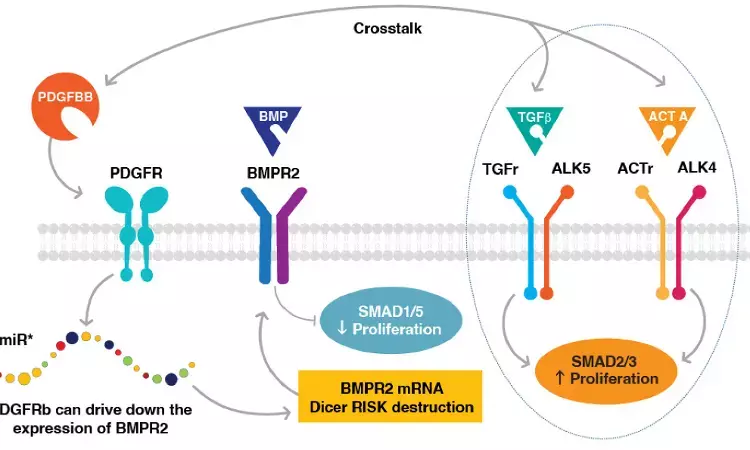- Home
- Medical news & Guidelines
- Anesthesiology
- Cardiology and CTVS
- Critical Care
- Dentistry
- Dermatology
- Diabetes and Endocrinology
- ENT
- Gastroenterology
- Medicine
- Nephrology
- Neurology
- Obstretics-Gynaecology
- Oncology
- Ophthalmology
- Orthopaedics
- Pediatrics-Neonatology
- Psychiatry
- Pulmonology
- Radiology
- Surgery
- Urology
- Laboratory Medicine
- Diet
- Nursing
- Paramedical
- Physiotherapy
- Health news
- Fact Check
- Bone Health Fact Check
- Brain Health Fact Check
- Cancer Related Fact Check
- Child Care Fact Check
- Dental and oral health fact check
- Diabetes and metabolic health fact check
- Diet and Nutrition Fact Check
- Eye and ENT Care Fact Check
- Fitness fact check
- Gut health fact check
- Heart health fact check
- Kidney health fact check
- Medical education fact check
- Men's health fact check
- Respiratory fact check
- Skin and hair care fact check
- Vaccine and Immunization fact check
- Women's health fact check
- AYUSH
- State News
- Andaman and Nicobar Islands
- Andhra Pradesh
- Arunachal Pradesh
- Assam
- Bihar
- Chandigarh
- Chattisgarh
- Dadra and Nagar Haveli
- Daman and Diu
- Delhi
- Goa
- Gujarat
- Haryana
- Himachal Pradesh
- Jammu & Kashmir
- Jharkhand
- Karnataka
- Kerala
- Ladakh
- Lakshadweep
- Madhya Pradesh
- Maharashtra
- Manipur
- Meghalaya
- Mizoram
- Nagaland
- Odisha
- Puducherry
- Punjab
- Rajasthan
- Sikkim
- Tamil Nadu
- Telangana
- Tripura
- Uttar Pradesh
- Uttrakhand
- West Bengal
- Medical Education
- Industry
Inhaled seralutinib significantly decreased pulmonary vascular resistance and benefit PAH patients: Study

Inhaled seralutinib significantly decreased pulmonary vascular resistance and benefit PAH patients suggests a study published in The Lancet Respiratory Medicine.
Morbidity and mortality in pulmonary arterial hypertension (PAH) remain high. Activation of platelet-derived growth factor receptor, colony stimulating factor 1 receptor, and mast or stem cell growth factor receptor kinases stimulates inflammatory, proliferative, and fibrotic pathways driving pulmonary vascular remodelling in PAH. Seralutinib, an inhaled kinase inhibitor, targets these pathways. We aimed to evaluate the efficacy and safety of seralutinib in patients with PAH receiving standard background therapy. The TORREY trial was a phase 2, randomised, multicentre, multinational, double-blind, placebo-controlled study. Patients with PAH from 40 hospital and community sites were randomly assigned 1:1 via interactive response technologies to receive seralutinib (60 mg twice daily for 2 weeks, then increased to 90 mg twice daily as tolerated) or placebo by dry powder inhaler twice daily for 24 weeks. Randomisation was stratified by baseline pulmonary vascular resistance (PVR; <800 dyne·s/cm5 and ≥800 dyne·s/cm5). Patients were eligible if classified as WHO Group 1 PH (PAH), WHO Functional Class II or III, with a PVR of 400 dyne·s/cm5 or more, and a 6 min walk distance of between 150 m and 550 m. The primary endpoint was change in PVR from baseline to 24 weeks. Analyses for efficacy endpoints were conducted in randomly assigned patients (intention-to-treat population). Safety analyses included all patients who received the study drug. Findings: From Nov 12, 2020, to April 20, 2022, 151 patients were screened for eligibility, and following exclusions, 86 adults receiving PAH background therapy were randomly assigned to seralutinib (n=44; four male, 40 female) or placebo (n=42; four male, 38 female), and comprised the intention-to-treat population.
At baseline, treatment groups were balanced except for a higher representation of WHO Functional Class II patients in the seralutinib group. The least squares mean change from baseline to week 24 in PVR was 21·2 dyne·s/cm5 (95% CI −37·4 to 79·8) for the placebo group and −74·9 dyne·s/cm5 (−139·7 to −10·2) for the seralutinib group. The least squares mean difference between the seralutinib and placebo groups for change in PVR was −96·1 dyne·s/cm5 (95% CI −183·5 to −8·8; p=0·03). The most common treatment-emergent adverse event in both treatment groups was cough: 16 (38%) of 42 patients in the placebo group; 19 (43%) of 44 patients in the seralutinib group. Treatment with inhaled seralutinib significantly decreased PVR, meeting the primary endpoint of the study among patients receiving background therapy for PAH.
Reference:
Robert P Frantz, Vallerie V McLaughlin, Sandeep Sahay, Pilar Escribano Subías, Ronald L Zolty, Raymond L Benza, Richard N Channick, Kelly M Chin, Anna R Hemnes, Luke S Howard, Olivier Sitbon, Jean-Luc Vachiéry, Roham T Zamanian, Matt Cravets, Robert F Roscigno, David Mottola, Robin Osterhout, Jean-Marie Bruey, Erin Elman, Cindy-ann Tompkins, Ed Parsley, Richard Aranda, Lawrence S Zisman, Hossein-Ardeschir Ghofrani,Seralutinib in adults with pulmonary arterial hypertension (TORREY): a randomised, double-blind, placebo-controlled phase 2 trial. The Lancet Respiratory Medicine, 2024, ISSN 2213-2600. https://doi.org/10.1016/S2213-2600(24)00072-9.
(https://www.sciencedirect.com/science/article/pii/S2213260024000729)
Dr. Shravani Dali has completed her BDS from Pravara institute of medical sciences, loni. Following which she extensively worked in the healthcare sector for 2+ years. She has been actively involved in writing blogs in field of health and wellness. Currently she is pursuing her Masters of public health-health administration from Tata institute of social sciences. She can be contacted at editorial@medicaldialogues.in.
Dr Kamal Kant Kohli-MBBS, DTCD- a chest specialist with more than 30 years of practice and a flair for writing clinical articles, Dr Kamal Kant Kohli joined Medical Dialogues as a Chief Editor of Medical News. Besides writing articles, as an editor, he proofreads and verifies all the medical content published on Medical Dialogues including those coming from journals, studies,medical conferences,guidelines etc. Email: drkohli@medicaldialogues.in. Contact no. 011-43720751


